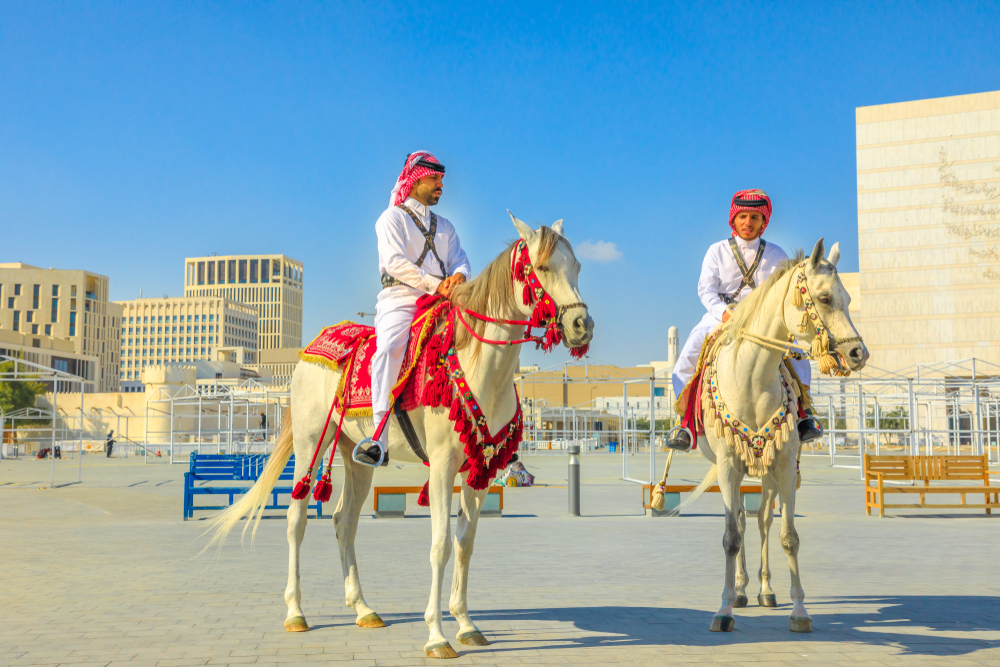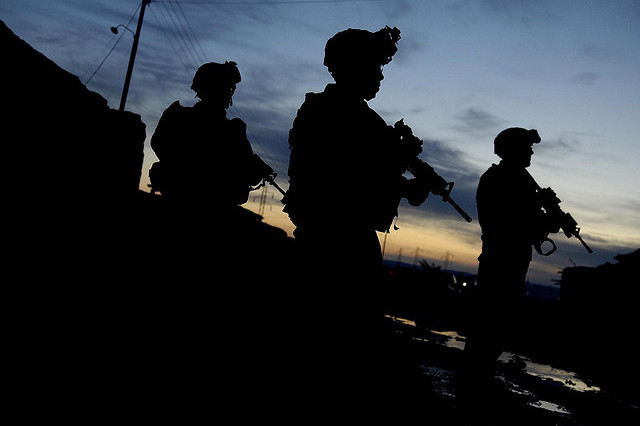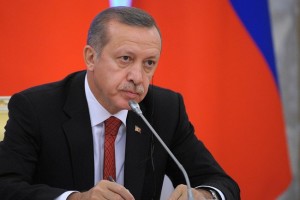by Adam Dempsey
In December 2014, the Gulf Cooperation Council (GCC) announced plans to create a region-wide police force. The new organization, known as GCCPol, would be based out of Abu Dhabi and, for all intents and purposes, would operate along similar lines as Interpol and other regional police groupings. Following the signing of the 2015 agreement, which confirmed GCCPol’s formation, some regional observers boldly predicted a new era of cooperation between GCC security authorities.
Yet beyond the occasional high-level declaration, exchange visit, and partner program, GCCPol has done little to facilitate the type of coordination required to effectively combat terrorism and other cross-border criminal activities. Indeed, this regional policing initiative barely exists.
Bureaucratically, GCCPol has been busy over the past few years making connections in all the right places. In February 2017, for example, the force signed a Memorandum of Understanding with Interpol to develop a systematic approach to combatting regional terrorism. The most recent exchange between both organizations occurred in January of this year, when a GCCPol delegation met counterparts in Lyon to discuss, among other issues, maritime security. GCCPol also has access to Interpol’s I-24/7, a technical network that allows law enforcement agencies around the world to share sensitive information.
GCCPol also appears increasingly well-integrated with other regional police organizations such as Aseanapol, as well as more local activities, as demonstrated by its presence at the 42nd Conference of Arab Police and Security Leaders in December 2018. It has also reached out beyond cooperation with comparable organizations. In October 2018, GCCPol co-hosted a session with Kaspersky Lab to exchange information and expertise on the latest cyber threats facing the wider region. The force also supports No More Ransom, an anti-ransomware project that counts Amazon and McAfee among its corporate partners.
Speaking in 2017, GCC Secretary-General Abdullatif bin Rashid Al Zayani seemed confident that GCCPol was capable of dealing with all kinds of security threats. By that time, the sub-regional organization’s six member-states had supposedly established a counter-narcotic center and developed crisis and emergency response capabilities. Al Zayani also claimed that GCCPol was making progress in efforts to develop an immigration database.
But then the trail goes cold.
Mixed Signals
Making the case that the GCCPol is fully functioning isn’t helped by a less-than-impressive social media presence or the lack of an official website. There’s also little in the way of information concerning GCCPol on the main GCC website or news regarding operations and developments in relation to the centers of excellence. And if GCC-Stat is anything to go by, little has been done to chart immigration into a region where migrants can make up to 90 percent of the local population.
Confidentiality is undoubtedly an important feature of many policing operations. But the GCCPol’s infrequent updates on its briefings stand in marked contrast with Interpol’s comparatively transparent approach to highlighting its activities and achievements.
Hans-Jakob Schindler, the senior director of the Counter Extremism Project, isn’t entirely convinced that all regional participants at the above meetings and initiatives are there in an official GCCPol capacity. Indeed, in all his years liaising with the GCC’s security agencies, he has never come across a GCCPol representative. Nor has he seen any recent updates on joint operations and successful outcomes. As he sees it, the GCC is an idea and organization that has never reached its full potential. Indeed, the past two years have seen the organization creep into a state of inertia that could take up to a decade to repair.
Testing Times
The GCC states share a range of problems that justify a combined regional police force, such as narcotics trafficking, where cartels and terrorist organizations sometimes intersect. According to the UNODC’s World Drug Report 2018, the range of drugs and drug markets are expanding like never before, with production of opium and cocaine reaching unprecedented levels. Although North America and Western Europe remain the main destinations for coke-based products, consumption is on an upward trajectory in markets like the Arabian Peninsula.
UNODC statistics also suggest that increased production is being matched by a rise in seizures. Several notable combined operations to intercept illegal substances have taken place in the Gulf region. In the first half of 2017, anti-narcotics departments from the United Arab Emirates (UAE), Saudi Arabia, and Oman joined forces to seize over 150 kilograms of marijuana and almost 3 million captagon tablets. Captagon, a psychostimulant, has become the most popular drug in the Arabian peninsula. In the same year, UAE authorities teamed up with Saudi Arabia’s Directorate of Drug Control to seize two million captagon pills.
Although such operations underscore how GCC states can together to combat drug trafficking, there’s nothing to suggest that these were conducted under a GCCPol flag. Individual efforts and international partnerships are much more commonplace. By its own admission, the UAE is “at war” with drug smugglers. In 2017, the country’s security forces seized 61,525 kilograms of narcotics, up 538.2% on the previous year. However, one of the Emirates’ most successful partnerships occurred last year when Dubai Police cooperated with UK counterparts to seize 1.4 tons of cocaine.
Thanks to its hosting of the Combined Maritime Force, Bahrain also makes a significant regional contribution to counter-narcotics activities. Over the past few months, Canadian troops attached to Combined Task Force 150 have helped to intercept a number of dhows trafficking 16 tons of illicit drugs. A significant outcome of the most recent United States-Kuwait Strategic Dialogue was the signing of a memorandum of cooperation between the Drug Enforcement Administration and the Kuwaiti Drug Control General Department to disrupt transnational criminal activities.
Don’t Hold Your Breath
The lack of official or sustained GCCPol activities isn’t entirely surprising. Once a vocal proponent of a region-wide police force, Qatar remains blockaded by half of the GCC member-states—Bahrain, Saudi Arabia, and the UAE—over Doha’s alleged support for terrorism and close ties to Iran. Keeping Tehran’s influence in check remains a main priority for Riyadh. This is particularly the case in war-torn Yemen, where the Saudis are heading a coalition battling Iranian-backed Houthi rebels. Put another way, very little gets done in the GCC without the full attention of Saudi Arabia and, to a lesser extent, the UAE.
However, as Hans-Jakob Schindler points out, Interpol wasn’t born with shiny new offices and an abundance of resources. These took time to acquire. Moreover, the creation of GCCPol reflects a broader global consensus that transnational crime cannot be effectively tackled in isolation. Yet, it’s difficult to imagine the six countries that belong to the GCC putting aside their differences and contrasting geopolitical perspectives to create a cohesive and recognizable regional police force.
The paralysis of the GCC as a result of the Qatar crisis has led to diminishing prospects for economic integration in the GCC, missed investment opportunities, and restrictions on freedom to travel. Add to that one more negative consequence: the significantly lower chances of the GCCPol becoming a real force in the region.
Adam Dempsey (@AdamDDempsey) is an advisor at Gulf State Analytics (@GulfStateAnalyt), a Washington, DC-based geopolitical risk consultancy.






Since Day 1 GCC stood for Gulf Competition Council. Too many economic similarities and overlaps; too many historic rivalries. Every one wanted a national airline, telecom network, stock market…the only thing shared – Gulf Air – is gone.